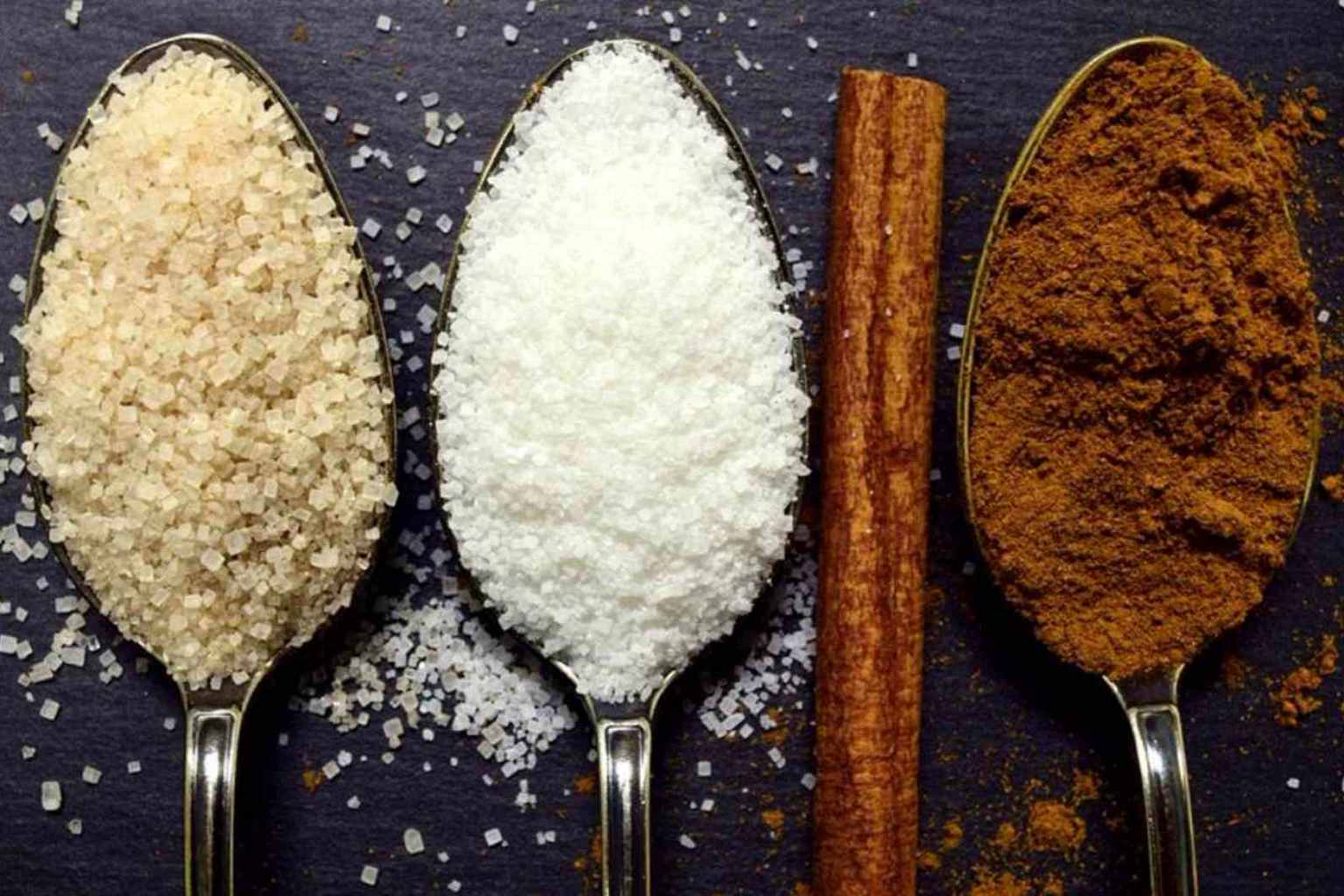White, cane, or brown sugar: which one is truly the healthiest? Choosing the right sugar can be baffling, especially with so many options boasting different flavors and colors. But behind the sweet taste lies the real question: how do these sugars affect your health? Nutritionists reveal surprising truths that might change the way you think about your daily sweet fix.
The average person should aim to consume no more than about 25 grams—or roughly 6 teaspoons—of sugar per day. This aligns with World Health Organization (WHO) guidelines, recommending that sugar should never exceed 10% of your daily calories. Yet, between the sneakily sweetened processed foods and that morning cup of coffee with a teaspoon of sugar, many of us unknowingly go overboard without realizing it.
So, which sugar should you choose to satisfy your cravings without harming your body? Let’s break down the facts.
Which sugar is healthier: white, cane, or brown?
It’s a common belief that brown sugar or cane sugar is the healthier choice, especially compared to the often-maligned white sugar. But nutritionists warn that this assumption may mislead you. While brown sugar does contain trace amounts of minerals and vitamins due to the presence of molasses, the quantities are so minor that they hardly make a nutritional difference.
All three — white sugar, cane sugar, and brown sugar — are essentially the same when it comes to calories and impact on blood sugar levels. Overindulging in any type can lead to the same health problems, such as energy spikes followed by crashes, weight gain, and increased risk for chronic diseases.
I recall switching from white to brown sugar, hoping for a healthier alternative; yet, my energy levels remained the same, and my sweet tooth still called out just as loudly. That personal experience taught me an important lesson: it’s not just about the type of sugar but the amount you consume.
The key is moderation. Try to keep your daily intake under 25 grams, no matter which sugar you prefer.
Production process differences between white and brown sugar
The difference between white sugar and brown sugar primarily lies in how they’re processed. Both come from sugar cane or sugar beet, but the finishing steps vary.
To make white sugar, manufacturers remove all the molasses via refining and washing, leaving pure, colorless crystals. Brown sugar, by contrast, retains some molasses, giving it its darker color, moist texture, and that rich caramel-like flavor many love.
Importantly, no artificial coloring is added to brown sugar—its hue comes purely from molasses. Sometimes, commercial brown sugar is made by blending white sugar with molasses to achieve a consistent look and taste.
Even though brown sugar may seem more “natural,” from a nutritional standpoint, it’s hardly different from white sugar. Just keep in mind that its slightly more intense flavor might cause some to use more, which can unintentionally boost your sugar intake.
Are sweeteners a better option than sugar?
If cutting back on sugar feels impossible, you might wonder if artificial or natural sweeteners offer a healthier alternative.
Sweeteners like **stevia** and **saccharin** aren’t “healthy,” but they can be less harmful than plain sugar. Sugar alcohols — such as xylitol, maltitol, and sorbitol — are often recommended as gentler ways to reduce sugar consumption, as they provide sweetness with fewer calories and a slower impact on blood sugar.
Natural options like honey and Ceylon cinnamon also deserve mention. While honey still contains sugars, it offers trace nutrients and antioxidants. Ceylon cinnamon, in particular, may help regulate blood sugar levels and adds a warming sweetness without extra calories.
Personally, I found that replacing my regular sugar with a sprinkle of cinnamon or a drizzle of honey made my coffee taste richer and helped curb cravings. It was a small change that made a big difference in how I felt throughout the day.
What about you? How do you sweeten your favorite foods or drinks? Have you tried swapping sugar for natural sweeteners or sugar alternatives? Share your experiences below and join the conversation—your story might inspire someone else to rethink their sweet habits. And if you found these insights helpful, don’t hesitate to share this article with your friends and family!
